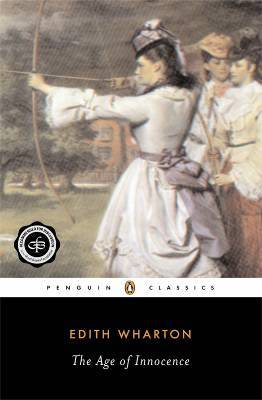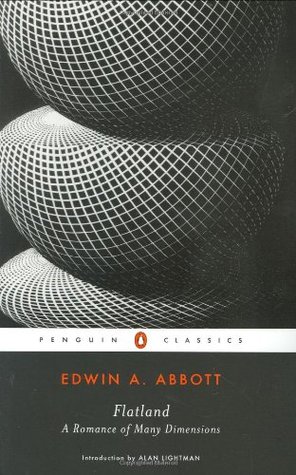 On a January evening of the early seventies, Christine Nilsson was singing in Faust at the Academy of Music in New York.
On a January evening of the early seventies, Christine Nilsson was singing in Faust at the Academy of Music in New York. "When the Countess Ellen Olenska returns from Europe, fleeing her brutish husband, her rebellious independence and passionate awareness of life stir the educated sensitivity of Newland Archer, already engaged to be married to her cousin May Welland, "that terrifying product of the social system he belonged to and believed in, the young girl who knew nothing and expected everything." As the consequent drama unfolds, Edith Wharton's sharp ironic wit and Jamesian mastery of form create a disturbingly accurate picture of men and women caught in a society that denies humanity while desperately defending 'civilization.'"
I first read The Age of Innocence several years ago, and I'm not really sure how much of it I comprehended, or even, looking back, how I managed to finish it when I was about nine years year old. This time, I really appreciated the clever writing and the nuances which made this book moving and astute. Wharton deftly captures the society that Archer lives in through description, dialogue, and his own reflections. I bookmarked so many interesting passages.
The novel proceeds at a leisurely pace, but it is also quite intense and searing, as Archer is turned from the system he was once so much a part of. Yet he also does remain part of it, dutifully doing what he's told to, marrying May Welland, despite his passion for the Countess Olenska. The way that Archer is trapped by the world he lives in and doomed by his circumstances is skillfully, heartbreakingly told; I sympathized with him, but I also felt a certain irritation at the fact that he didn't rebel, didn't cast off his obligations.
The scenes with Archer and Ellen Olenska are so slow-burning and yet intense; one can feel the tension and the electricity between them, and also the doomed nature of their relationship. The fact that Archer does not cancel his wedding to the lovely but shallowly innocent May Welland provides a device to further the rest of this wonderful story.
Speaking of May, expert descriptions of her are woven throughout the book so that by the middle one has a clear picture of what she's like, "that terrifying product of the social system [Archer] belonged to and believed in, the young girl who knew nothing and expected everything." May is so innocent, and so blind. She follows society's expectations of her, and thus is not free, but she doesn't even recognize her lack of freedom, and it is this (among other things) that frustrates Archer so deeply. Once, briefly, she comes out of her shell, but Archer "[understands] that her courage and initiative were all for others, and that she [has] none for herself."
Another of Archer's increasing horrors is that everyone is the same, that in pressing for an earlier engagement (for example), he's just doing what's expected of him: "His heart sank, for he saw that he was saying all the things that young men in the same situation were expected to say, and that she was making the answers that instinct and tradition taught her to make - even to the point of calling him original." He adds that "we're all as like each other as thsoe dolls cut out of the same folded paper. We're like patterns stencilled on a wall." The problem, I think, is that Archer wants to change May, but it's not going to happen. Here's another chilling quote from the same section: "It would presently be his task to take the bandage from [May's] eyes, and id her look forth on the world. But how many generations of the women who had gone to her making had descended bandaged to the family vault? He shivered a little, remembering some of the new ideas in his scientific books, and the much-cited instance of the Kentucky cave-fish, which had ceased to develop eyes because they had no use for them. What if, when he had bidden May Welland to open hers, they could only look out blankly at blankness?" Whereas Ellen's are fully open.
The Age of Innocence also has quite a lot of ironic, witty humor. Wharton brilliantly skewers the hypocrisies and idiosyncrasies of late 19th century American society, at once supposedly more "liberal" than Europe, but at the same time just as focused on reputation. For example, "an unalterable and unquestioned law of the musical world required that the German text of French operas sung by Swedish artists should be translated into Italian for the clearer understanding of English-speaking audiences." There are also so many rules about who to entertain, and what to wear at different functions; of course, Countess Olenska flouts all of these conventions; in that sense, she is rather a cliche of a woman different from the rest, scornful of the world's opinion, who makes the male main character start to question his heretofore tranquil existence.
All of this is captured through beautiful, elegant prose; I absolutely loved the writing which was thoughtful but not overwritten. I felt sorry for the characters, particularly Archer and the Countess of course, but also for May Welland. She's a sweet sort of person, and the way she is is not her fault. Later, she reveals herself to be much more understanding.
There are many feminist sentiments in this novel, most of them expressed by Archer, who starts to believe more and more that women should be free and allowed to have just as many experiences as men, which is a novel idea for the time the book is set (1870's), and for Wharton's own time as well (the book was published in 1920).
The Age of Innocence is not perhaps as exciting or dramatic as other 19th and early 20th century novels, but it appealed to my brain and to my heart; the ending was certainly so heartbreaking and sad, but also inevitable. I would highly recommend this wise and witty novel. It still has plenty of relevance today.
298 pages.
Rating: *****





